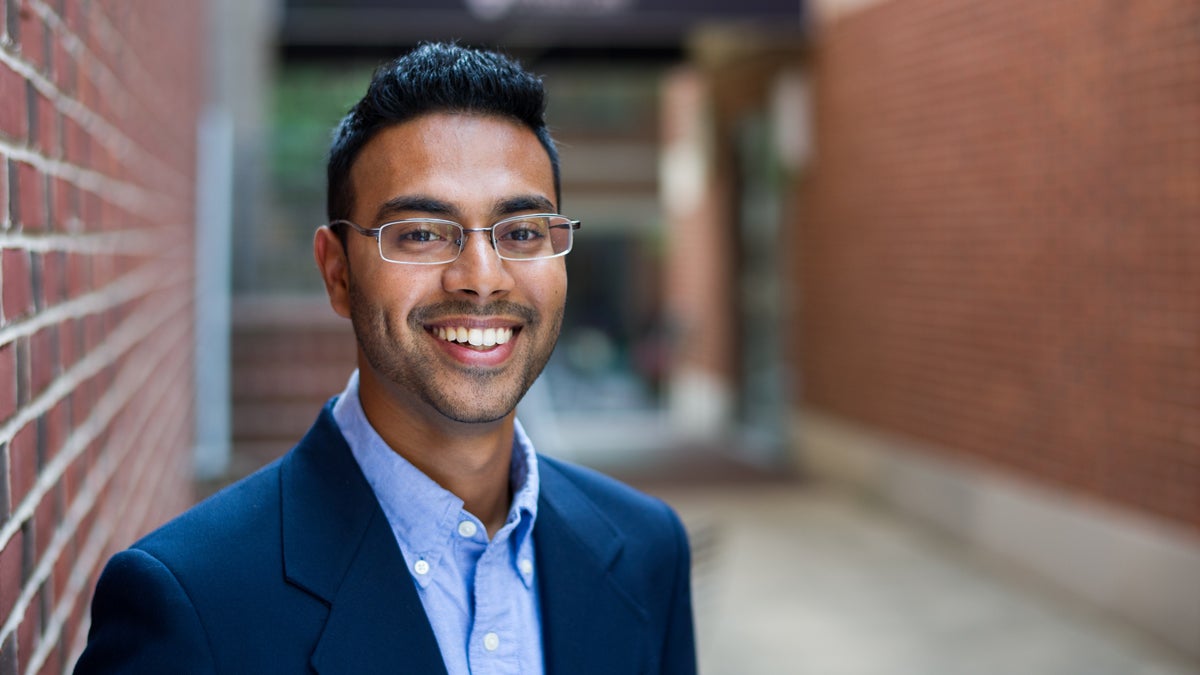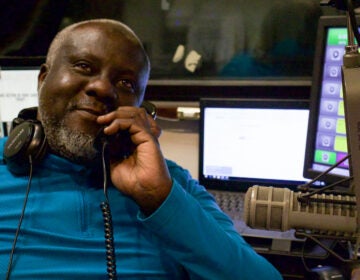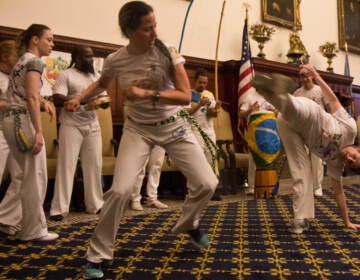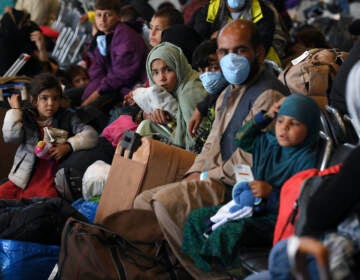What does a Muslim immigrant look like? The best of America

Akbar Hossain, age 26, is a Muslim immigrant from Bangladesh, a P.D. Soros Fellow at the University of Pennsylvania Law School, and a recent appointee to the Norristown Planning Commission. (Courtesy of Penn Law)
How does a Muslim boy born in Bangladesh end up at the University of Pennsylvania Law School? By winning the lottery, of course.
Seventeen years ago, Akbar Hossain was a 9-year-old growing up in Bangladesh. Though his country had earned its independence from Pakistan in 1971, it remained in deep poverty. About 25 percent of Bangladeshis live on $2 a day, not enough for a single Starbucks coffee.
Job opportunities in Bangladesh are limited. So Akbar’s father, a welder, worked as an itinerant laborer throughout the Middle East. The Hossain family had been living in Saudi Arabia for six years when they learned, while visiting a shopping mall, about the Diversity Visa Lottery to America.
Akbar’s mother entered the lottery. Six months later, an imposing package arrived at his grandparents’ home. No one in their village read English, so a schoolteacher was enlisted to translate their good news. After many months of vetting, Akbar and his family found themselves living the dream: They were going to America.
There was just one problem. They arrived on Sept. 9, 2001.
Two days later, the world was in chaos, the person they had paid to help relocate them had disappeared, and they knew not a soul but each other.
But the Hossains were survivors. They demonstrated the same grit as generations of American immigrants before them. Akbar’s father took on three minimum-wage jobs, walking an hour along Route 202 to get from one job to the next. When he died at work from heat stroke, Akbar, then 14, got a job at a gas station, working 3 p.m. to 11 p.m. each day to support his family.
A high school guidance counselor encouraged Akbar to apply to Franklin and Marshall College, in Lancaster. He excelled there, becoming the college’s first Truman Scholar. Established by President Truman, Truman Scholarships are awarded to students who plan careers in public service. Only one student per state is chosen each year. There were 587 applicants in Pennsylvania alone that year, and Akbar won.
As a Truman Scholar, Akbar pursued his interest in the U.S. asylum system. At F&M, he’d been fascinated by a course on human rights taught by Dr. Susan Dicklitch. As part of the course, he’d been assigned to an actual asylum case in York, working with an attorney from the Pennsylvania Immigration Resource Center. His client was a Sudanese man who was trying to escape the violence of Darfur. His scarred back showed signs of torture.
Akbar learned that his client, like most asylum seekers, did not speak English well. He learned that few asylum seekers have access to legal counsel. Most troubling, he learned that asylum seekers are often held in federal prisons alongside dangerous criminals.
After Akbar graduated from F&M, he spent two years in Washington, D.C., where he worked on asylum and immigration issues at several federal agencies. This year, he’ll be a summer associate at the prestigious law firm Morgan Lewis, where he’ll continue that work.
What next? “My faith and my upbringing demand that I serve others,” says Akbar. He’s found three ways to give back to his adopted country.
First, community development: Akbar’s family settled in Norristown, where many people live in poverty. As the youngest person ever appointed to the Norristown Planning Commission, he seeks ways to engage with other municipalities to develop new business and provide sustainable economic development.
Second, visibility and access: Akbar understands firsthand that low-income children need role models. Like many of them, he grew up without money, without a father, and with few chances to thrive. He wants underprivileged children to know that, if he made it, so can they. He’s a member of Norristown Men of Excellence, a group of male college graduates who help Norristown boys and girls to succeed. He’s also on the board of KIPP Philadelphia, a highly successful inner city charter school.
Third, Akbar is committed to building bridges between his two cultures. He wants to show fellow Americans what Muslims look like — and how we can work together to strengthen our country. When he wrote an opinion piece in the “Philadelphia Inquirer,” and offered to have coffee with anyone who wanted to meet a Muslim, 300 people responded. He plans to meet every one of them.
So — what does a Muslim American look like? If you’re Akbar Hossain, you look like someone with determination, intelligence, love of family and country, and a desire to help others who haven’t had your incredible luck. You look like the very best of America.
WHYY is your source for fact-based, in-depth journalism and information. As a nonprofit organization, we rely on financial support from readers like you. Please give today.




